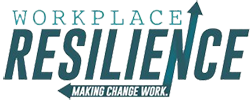 My son came to visit last weekend and brought his 6-month-old Golden Doodle puppy. We went shopping and spent way too much time picking out the perfect new toy and collar for the puppy. He had both of these items destroyed within minutes.
My son came to visit last weekend and brought his 6-month-old Golden Doodle puppy. We went shopping and spent way too much time picking out the perfect new toy and collar for the puppy. He had both of these items destroyed within minutes.
This puppy has a history of chewing objects that are not his toys. I’m talking about shoes, newspapers, magazines and pretty much anything that he can get his little paws on. You have to keep an eye on him at every moment because he gets into trouble pretty fast.
Anyway, my son and daughter-in-law have tried, with mixed results, to leave him out in the house when they are gone. They feel bad that this energetic puppy is being kept in his small crate all day. I can understand how they feel.
My daughter-in-law called me on her way home from work last week and told me that she was anxious to see if their puppy had been good all day. She informed me that she had left him out. I replied with an “uh-oh”. I envisioned the mess that was probably waiting for her. I didn’t doubt for a minute that there was going to be a cleanup in her future.
To make a long story short, the puppy didn’t let me down. The photo she sent me told the whole story. The couch was strewn with a variety of shoes that the puppy had methodically pulled out of the closet. I recognized my son’s dress shoes. I couldn’t see up close, but I’m pretty sure that some of those shoes were no longer wearable.
Right now, you’re probably thinking that this could have easily been avoided. You would have known better and it would have never happened to you. However, we’re all guilty of “leaving the puppy out” now and then.
You know that employee you continue to trust to manage the team even though they have let you down numerous times in the past? How about that friend that has been in your life forever and you continue to be shocked when they disappoint you? Or the co-worker that repeatedly frustrates you when you stick your neck out for him or her— yet you still go back for more? Sometime in your life, you have been guilty of this. You want to trust them, you want to believe that this time they mean it and they will change— but all too often, you are let down. You wash, rinse and repeat many times over.
You want it to work much more than they do.
It’s a wonderful human quality to believe in someone. However, sometimes we want others to change more than they want to or more than they’re ready for. We set them up for failure by continuing to give them rope to hang themselves with.
The only person that you have the right to be mad at is YOU. You need to take control of this situation. Stop expecting different outcomes with the same scenario over and over.
It’s time to take responsibility for what’s not working.



